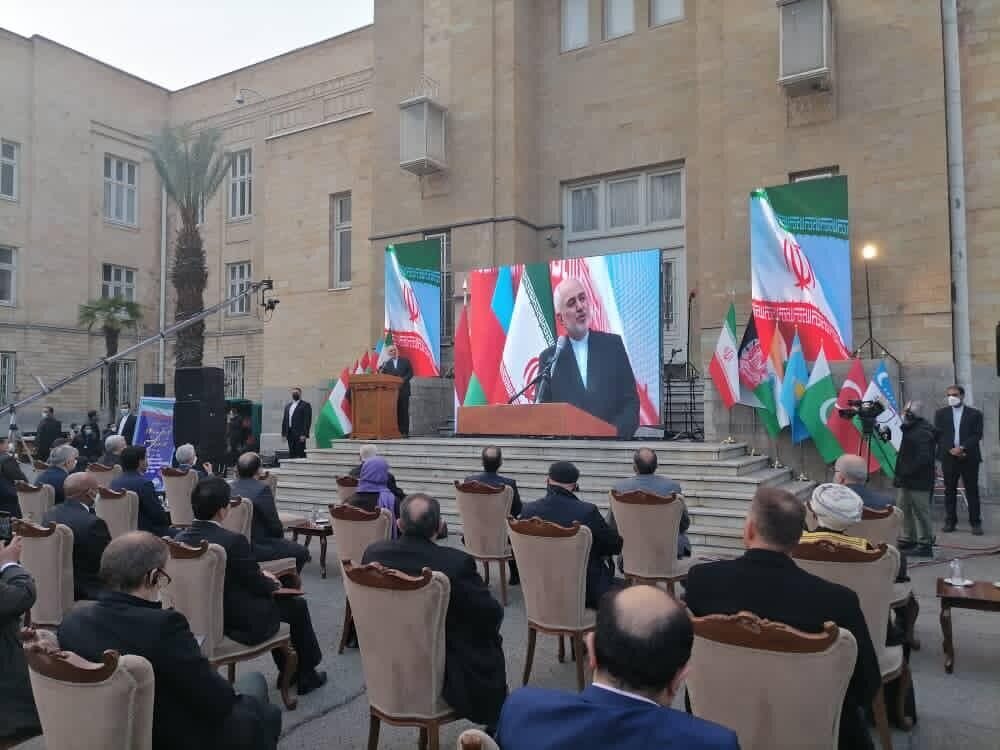

TEHRAN – Foreign Minister Mohammad Javad Zarif said on Tuesday that Iran has always been ready for inclusive and workable arrangements in the region and beyond, Iran Press reported.
Zarif made the remarked at a the “Tehran Dialogue Forum 2021” attended virtually by foreign ministers of Afghanistan and Turkey.
Regarding the transformation in international politics after Covid-19 pandemic, Zarif noted, “The main question which I would like to address is if international politics is going through drastic changes or not, and if the pandemic would change the world order or not.”
While seeking to explain the pandemic according to scientific theories, he said, “There are different schools of thought but to encapsulate them, I can say that there are three major lines of argument including those: Who believe this pandemic will be soon taken under control and everything will get back to normal, meaning no strategic changes; those who argue that not only the social life has changed forever but other aspects of human relations have changed and the new era has already started; and those who believe that transition in international politics had already begun before pandemic but was accelerated by it and the pandemic has worked as a catalyst.”
Warning about the dangers the nations facing, he stressed, “We, in West Asia, were used to always argue that the time is sensitive but now I can state that if there is one consensus among experts about the current state of affairs in world politics it is that time is sensitive, context is complex and uncertainty widespread.”
The foreign minister expressed hope that a new multi-polar global order will be created.
“It should be argued here that the vertical approach to international relations does not best serve to explain what is happening. We need to adopt a horizontal approach as well, meaning that we are experiencing a new world order in which there are equally diversified centers of powers.”
A world that there is just no single superpower dominating and dictating, he added.
With regard to rivalry among great powers in the 21st century, he underlined, “We are seeing the emergence of China, a revival of Russia, and the intangible rise of non-Western powers and the awakening of Asian and African players, which have been either remained unseen or, more accurately, intentionally have been neglected by the West.”
‘Frozen mindset of old great powers’
The Iranian foreign minister reminded that there is a reality which has been so obvious that even Western academia and think tanks, and even Western security clubs such as the MSC, have noticed to the extent that jargons such as “Westlessness” or “post-Western world” have been coined.
“One of the main problems the world is facing right now is exactly the frozen mindset of old great powers, more specifically the U.S., which uses all it holds to prevent this definite transition: from naked use of force and hard power to protectionism, the weaponization of dollar, sanctions, and economic war against competitors. It even uses multilateralism to actually exhaust diplomacy to avoid multilateralism,” he underscored.
Criticizing U.S. foreign policy towards Iran and the region, he noted, “Different U.S. administrations have used different strategies, including the current one, but all have had similar aims and agendas. This is the main problem. Look at how it behaves in our region and vis-à-vis Iran.”
‘Genuine normative global player’
The chief Iranian diplomat emphasized Iran is obviously and undeniably a genuine regional player but is also a genuine normative global player, saying Iran for “many years has tried to raise new concepts such as ‘resistance to domination and U.S. interventionism’, ‘principled international order based on equality of players and justice’, and also an alternative approach to the world politics that ‘power politics’ is not the only game at play. It is why, intellectually speaking, many argue that such an approach could be seen as one of the main engines for post-colonial understanding.”
He went on to say, “The U.S. is, obviously, struggling to avoid or delay such a transition but in fact has accelerated the ‘awakening wave’ among not only the ‘Eastern axis’, but even also among the liberal West: as we are hearing on a daily basis about ‘strategic autonomy’ in Europe.”
Offering his solution to overcome these obstacles, he said, “I can say in one sentence that fundamental changes need to be adopted on both cognitive as well as practical levels, but it starts with acceptance: the U.S. has to accept the reality of the world in transition; the realities of our region, and the reality of Iran.”
Concerning the geopolitical importance of Iran in West Asia, he underlined, “But unfortunately, it (the U.S.) has actively tried to ‘exclude’ Iran from any regional arrangement; to demonize the great nation of Iran, and more importantly to ‘make Iran as an exception’ in international politics: Which have all of course failed.”
Finally, he concluded Iran has been always ready for inclusive and workable arrangements in the region and beyond.
EE/PA
 RSS Feed
RSS Feed













 March 17th, 2021
March 17th, 2021  Awake Goy
Awake Goy  Posted in
Posted in  Tags:
Tags: 
















